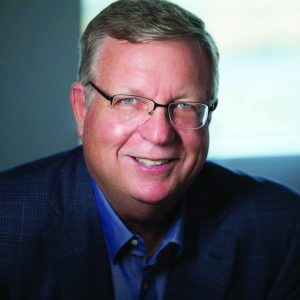Tech council CEO on how to grow Maryland’s workforce

Maryland’s life sciences and tech industries have continued to grow, but to keep up with that growth the workforce has to grow too. Martin Rosendale, CEO of the Maryland Tech Council, discussed some of the workforce challenges the industries face and ways to grow the workforce.
TDR: Do you think the state is supporting the tech and life science communities in the right way to build its workforce or does more need to happen across the state to ensure that the workforce that technology and life sciences companies need is there?
Martin Rosendale: I think the state is doing a lot. I know, our program in Maryland, InMD, is a platform to connect interns with companies. The state funded the development of that platform. That will go a long way to helping interns, young people, learn more about the kinds of jobs they can have in these companies and where they want to go. I think that will help with the workforce.
With workforce, all of those programs are great and good, but there are other aspects — and I think the state understands this and they are working on it — and those other aspects are things like trailing spouses. If you want to attract somebody into an organization, how do you support the trailing spouse? What kind of job environment is there for trailing spouses and significant others that are coming in? What about infrastructure and transportation and all of those things?
TDR: Are there things that you are prioritizing now, with the executive branch or the legislature?
MR: First of all, things like protecting the tax credits and the valuable programs that we have now is a high priority. But then, we’re looking at other opportunities and how we can get better state support for programs like internships and apprenticeships.
I think it’s really valuable that Kelly Schulz, Secretary Shulz, is now secretary of commerce because she did some pretty amazing and interesting things with respect to apprenticeships at (the Department of Labor, Licensing and Regulation) and she is bringing that to Commerce now. I think that’s going to help fuel this going forward as well.
TDR: How bad is the issue of raiding?
MR: It’s hard for me to put a weight on it, but it’s pretty significant. It’s both in the life sciences and the tech side. … I hear a lot from our members about the fact that they are resorting to stealing employees from one another.
I don’t know how big the problem is from outsiders coming in and raiding our employees, but I suspect it is relatively significant because we do have a very educated workforce here.
TDR: In Silicon Valley they purposefully decided not to implement noncompetes. Is it common for companies to require that in Maryland?
MR: In my experience, the mid-sized to higher companies typically will incorporate noncompete agreements for their executives. But it’s also my experience that noncompetes are very difficult to enforce. I don’t know how much weight they actually have.
TDR: What’s the solution?
MR: I think the ultimate solution is to develop more employees, to develop a bigger workforce and to get the proper education. We talk about how highly educated our workforce is — which is wonderful and it does attract companies here — but we have this next level down where the gap is.
I can tell you we already have a serious issue on the tech side. The number of coders and technicians that are needed, the last number that I saw was like 20,000 openings at the moment. I think the number is bigger than that.
But on the life sciences side we are heading into a very similar problem with Kite Pharma coming in, with Catalent with Precigen just opened up a manufacturing facility, Emergent (Biosolutions) has been growing, we are heading into a serious problem with technician-level workforce to support that advanced biomanufacturing industry that is growing.

